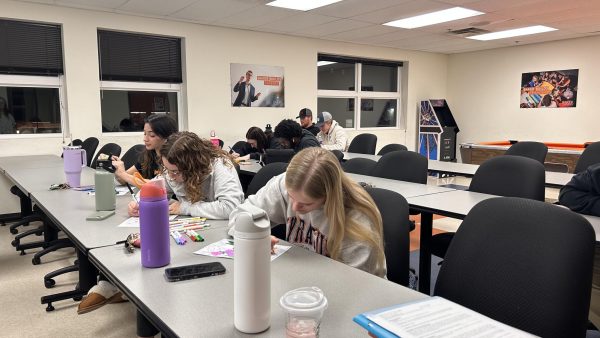Baker ahead of NAIA in drug testing
June 2, 2013
This article was originally published prior to June 2, 2013. Due to a change in content management systems, the initial publication date is not available.
Baker University’s athletic department has a drug-testing policy for its athletes, but not all other NAIA schools follow this type of policy.
Unlike the NCAA, drug testing is not mandated in the NAIA. However, Athletic Director Theresa Yetmar said a survey was sent out to schools asking if they individually performed drug tests, and the NAIA could explore more of a mandated program in the future.
“I think it sends a strong message about the health and wellness piece that we want our student-athletes to be taking care of themselves,” Yetmar said. “And that as an athlete, you’re supposed to be performing at an elite level, so you put yourself and your teammates in that much more jeopardy if it’s an issue.”
Baker’s policy, which can be found on the athletic website, states up to 12 student-athletes can be randomly selected each month for testing by an outside source.
Director of Sports Medicine Lynn Bott administers the tests and the results are processed by Quest Diagnostics.
Other schools in the HAAC also either have a policy in place or are looking to begin one.
Central Methodist University has a random policy in place using an outside source. The tests are given three times a semester to random student-athletes.
While Lindenwood University has not had a policy in the past, it is working on a policy that would be implemented next year.
Former Athletic Director Dan Harris would be in favor of random, mandatory drug-testing policies or other preventive solutions in the NAIA. Harris said the NAIA came out with a drug-prevention program in the mid-to-late 1990s, but it was more about education than a mandated program.
“My basic philosophy about the whole thing is, especially with illicit drugs, is it’s against the law,” Harris said. “I don’t care about any sort of research or benefits, at this time in our society, it’s against the law and that means you are breaking the law when you use it, therefore there needs to be some consequences.”
The university, as a whole, also has rules in place regarding drugs on campus, which can be found under university policies in the conduct process section of the student handbook. The handbook is reviewed and modified on an annual basis.
Dean of Students Cassy Bailey also likes the flexibility of looking at each incident on a case-by-case basis.
“I do think that’s fairest to the student that we don’t kind of channel everyone in,” Bailey said. “… My concern for the student is that it’s confusing, and that is what you don’t want in a conduct process.”
Three Baker students have been arrested this semester with drug charges, but Yetmar said the university is not alone in dealing with issues of drugs.
“We are not on an island by ourselves,” Yetmar said. “And speaking with colleagues, especially at the (NAIA National) Convention, there are many institutions very similar to us that are dealing with similar problems.”











